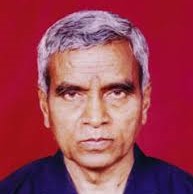Columns
Broken promises
The Nepal government has failed to live up to its commitments on transitional justice.
Ram Dayal Rakesh
There is a very popular saying in legal vocabulary: Justice is delayed, justice is denied, and justice hurried is justice buried. The United Nations High Commissioner for Refugees has warned in its decision published in Geneva last year that Nepal has violated a number of provisions of the International Covenant on Civil and Political Rights, and the country must remove all existing obstacles. The Human Rights Committee has the mandate to review complaints from individuals who have suffered human rights violations, and have been denied justice in their home countries. It is our hope that Nepal will take all necessary measures to protect and help victims of such acts regain their lives.
Against this background, we should also remember that human rights have become global from local. They have also become vocal nationally as well as internationally. In this complex scenario, the victims would be compelled to go abroad to seek justice. They have also threatened the government time and again. We all know that nearly 17,000 people were murdered in cold blood and 1,300 were disappeared during the decade-long Maoist conflict. Human rights defenders and the international community are putting pressure on the government to conclude the process as soon as possible. The delay is dragging on which is not justified in any sense.
Landmark verdict
After the appointment of party activists to the two bodies of transitional justice, the international community and human rights activists and civil society members raised their voices against the government many times. Four international human rights organisations and the Office of the United Nations High Commissioner for Human Rights (OHCHR) welcomed the Supreme Court's decision to reject a government petition to review its landmark verdict on transitional justice. The decision is an important step towards securing truth, justice and reparations for thousands of victims of the decade-long Maoist insurgency. Following the decisions, the government now needs to revise the existing transitional justice to the victims of conflict-era abuses, said Amnesty International, TRIAL, International Commission of Jurists and Human Rights Watch on May 1 last year.
‘The court's decision reconfirms that the only way for the government to credibly proceed with the transitional justice process is to abide by key human rights and transitional justice principles reflected in the 2015 court ruling, including the centrality of victims and the importance of accountability for serious violation,’ Rupert Colville, spokesperson for the OHCHR, said in a separate statement. In this scenario, the government ought to be compelled to revise the existing transitional law as per the court's order ensuring justice to the victims of conflict-era abuses.
The Supreme Court's 2015 verdict had ordered the government to amend the Enforced Disappearances Enquiry, Truth and Reconciliation Commission Act 2014. But the government did not respond at all. Now the court has ruled that the law had to be amended as it failed to adhere to the principles of transitional justice and related international practices. It directed the government to ensure that amnesty is not granted in cases of serious human rights violations committed during the decade-long insurgency.
‘The request filed by the Nepal government to review the decision of the Supreme Court was another attempt to evade the real issue: accountability for mass human rights violations. We are delighted that the Supreme Court held its ground and reaffirmed the importance of fair and efficient transitional justice mechanisms,’ said Cristina Cariello, head of the Nepal Programme at TRIAL International. When Nepal stood for election for the first time to the United Nations Human Rights Council, the government had promised to uphold its human rights obligations. Three years later, Nepal was re-elected as a member of the council, but there has been no progress on transitional justice. There are crimes under international law, subject to universal jurisdiction; and if justice is denied at home, the victims may take their cases abroad.
According to Gopal Shah, chairperson of the Conflict Victims National Network, it seems the parties have made up their mind that they will continue to dillydally over the delivery of justice. This saying is quite correct in this context that birds of a feather flock together.
According to a group of non-governmental organisations, the Nepal government has put on a dismal performance when it comes to transitional justice. They presented this report at the United Nations Human Rights Council’s Universal Periodic Review. This report, submitted to the council on behalf of 440 non-governmental organisations advocating human rights, says not a single commitment expressed by the government during the review in 2015 has been fully implemented. The government’s poor performance is clear because out of the 19 recommendations provided to the Nepal government during the review, only 11 have been partially implemented while eight have been left fully unimplemented.
Nobody is convinced
The Human Rights Commission of Nepal also raised the issue in its report to the council. It has protested that the government is reluctant to provide justice to the thousands of conflict victims. The team appointed two years ago from the Truth and Reconciliation Commission and the Commission of Investigation on Enforced Disappeared Persons also failed to solve this burning issue. Human Rights Watch in its report to the UN Human Rights Council has stated that Nepal has failed to live up to its commitments on transitional justice and carry out other recommendations in the United Nations Periodic Review in 2015.
In addition, Nepal had accepted 152 suggestions to meaningfully address sexual and gender-based violence and caste and ethnic discrimination, amend constitutional provisions that discriminate against women, and protect freedom of expression. Very recently, in his address to the 2021 Universal Periodic Review session, Minister for Foreign Affairs Pradeep Gyawali reiterated that Nepal was committed to concluding the transitional justice process ensuring justice to all victims of human rights violation during the decade-long Maoist insurgency. But neither human rights activists nor the victims nor the international community is convinced because he has made this type of commitment several times in the past.




 13.12°C Kathmandu
13.12°C Kathmandu















